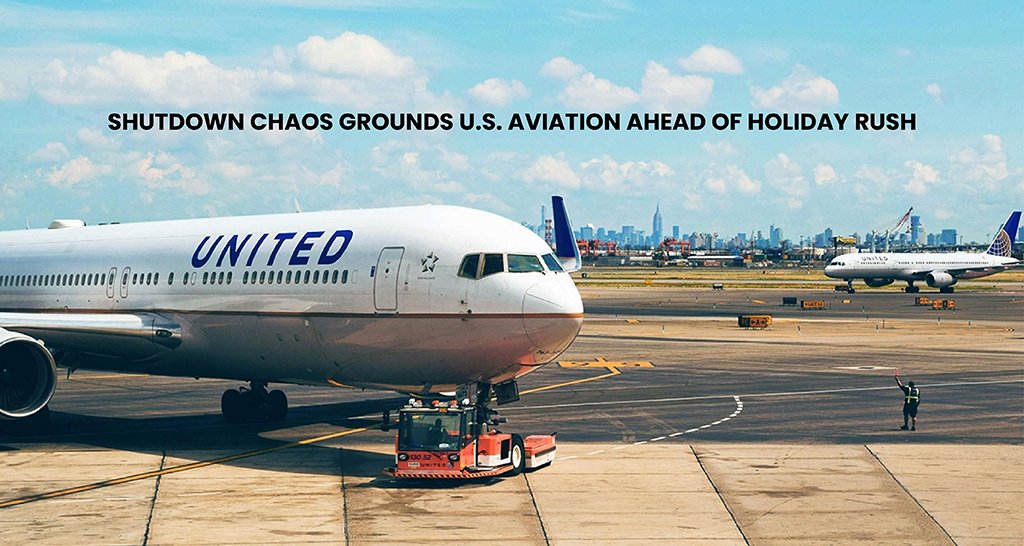With Thanksgiving travel just around the corner, U.S. airlines are grappling with increasing chaos as the ongoing government shutdown continues to impact the aviation industry. This disruption, now entering its second month, is really putting the resilience of the nation’s carriers to the test, especially as they prepare for what is usually a record number of passengers.
The shutdown has impacted the industry in several ways, from staffing shortages among federal air traffic controllers to delayed inspections, grounded aircraft, and a dip in consumer demand. Consequently, airlines are racing to stabilize their operations and reassure travelers as we approach what is typically the busiest travel season of the year.
Airports all over the country are starting to feel the pressure. In recent weeks, thousands of flights have faced delays or cancellations as a shortage of FAA personnel struggles to keep air traffic running smoothly. With many air traffic controllers and safety inspectors working without pay, we are seeing an increase in fatigue and absenteeism. This situation has led the Federal Aviation Administration to restrict flight schedules at major hubs like Atlanta, Dallas, Chicago, and New York.
For carriers, the operational hurdles are hitting their wallets hard. Analysts suggest that the industry is bleeding tens of millions of dollars every single day due to cancelled flights, rebookings, and extra staffing expenses. To keep things on track, many airlines have started offering overtime pay and bonuses to pilots, flight attendants, and ground crews. Yet, disruptions continue, with some airlines even cutting back on capacity to better handle the chaos.
The shutdown has really affected how passengers feel about flying. Normally, we see a big spike in Thanksgiving bookings around mid-November, but this year, things have stalled. Many travelers are holding off on purchasing tickets until they feel more confident about flight reliability. This uncertainty has hit budget airlines especially hard, as they depend on advance bookings and quick turnaround times to stay profitable.
Executives from several major airlines have raised concerns that even if the shutdown wraps up soon, the repercussions will stick around well into the holiday season. Getting aircraft repositioned, tackling maintenance backlogs, and rescheduling delayed flights could take weeks. Some airlines have already started offering travel waivers, letting passengers change their flights without any penalties as they brace for potential delays.
For those hitting the road this Thanksgiving, the situation is a bit of a mixed bag. If you are flying during the busiest travel days, be prepared for longer lines, limited flight choices, and a greater likelihood of cancellations or missed connections. Experts recommend getting to the airport early, keeping a close eye on flight updates, and being ready for any last-minute changes. On the flip side, many travelers are choosing to drive instead, which is adding extra strain on highways and local transit systems.
The impact of the shutdown goes far beyond just passenger airlines. Cargo companies, airport vendors, and tourism-related businesses are all feeling the pinch as flight disruptions send shockwaves through supply chains and local economies. The airline sector, which accounts for over 5% of the U.S. GDP, is raising alarms that if the federal funding deadlock persists, the economic fallout could be much more severe.
As Thanksgiving approaches, the aviation industry is gearing up for a challenging mix of political stalemates, operational pressures, and growing public dissatisfaction. For airlines, the task at hand is straightforward: keep flights running smoothly, maintain passengers’ confidence, and cross their fingers that lawmakers can reach an agreement before the holiday travel rush escalates into a nationwide crisis.












